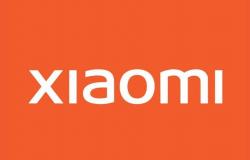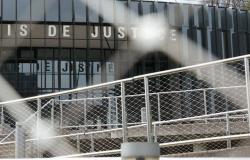
This economic week in the DRC reflects notable efforts to stabilize inflation, improve infrastructure, strengthen monetary regulation, and fight against fraudulent practices. The situation remains complex, marked by inflationary challenges and infrastructure needs, but current initiatives show a desire for progress and structural reforms.
Inflation and Price Indices
In the fourth week of May 2024, the inflation rate increased for the second week in a row, reaching 0.477% from 0.301% the previous week. This increase brings cumulative inflation to 5.885%, compared to 7.626% for the same period in 2023. The weekly increase in inflation is mainly due to the rise in prices of food, non-alcoholic beverages, housing, water, gas, electricity and other fuels, these categories contributing 58.1% and 11.4% of the overall index respectively. Year-on-year inflation stood at 21.748%, exceeding the annual target of 11.6%. Price increases, especially for cereal products, are influenced by external and internal factors, notably the increase in food prices.
Monetary regulation and stabilization
On May 28, 2024, the Central Bank of Congo (BCC) raised awareness among Kinshasa currency traders about instruction 007, aimed at regulating manual exchange activity and controlling monetary fluctuations. This campaign encourages money changers to leave the informal sector to formalize, fight against money laundering and stabilize the exchange rate, a crucial element for the national economy. The president of the professional corporation of manual currency traders (COPCAM), Donat Lenghu Mpeya, stressed the importance of this initiative to stabilize the sector and support the government’s economic strategies.
Infrastructure and logistics
In response to the collapse of the Lubi Bridge, the Ministry of Infrastructure and Public Works launched the construction of a bypass road to restore traffic on National Road No. 1. The 115 km bypass road will be opened in 10 days, alongside the construction of a new 45-tonne bridge to replace the old 25-tonne one. The works aim to stabilize the ground and ensure a sustainable solution for transport and logistics in the region. The Minister of Infrastructure, Alexis Gisaro Muvunyi, worked with local authorities to speed up the work and meet the needs of the population.
Foreign trade and the fight against dumping
The new Minister of Foreign Trade, Dr Julien Paluku Kahongya, has pledged to combat dumping, an unfair practice that harms the national economy. Dumping consists of selling abroad at a price lower than that applied on the national market. This practice is prohibited by the World Trade Organization (WTO) because it can be social, environmental or fiscal. Minister Paluku thanked President Tshisekedi and Prime Minister Judith Suminwa for the trust placed in him and pledged to support the President’s vision for the national development of the DRC.
Fraud and revenue collection
The National Road Maintenance Fund (FONER) deplored a shortfall of USD 80 million due to fraud and leakage of revenues. The general management of FONER launched systematic action to recover these amounts, including field investigations, formal notices, and the transmission of files to the judicial and economic services. These actions aim to strengthen FONER’s intervention capacity for road maintenance across the country.
Dynamics of food prices
According to the Famine Early Warning Systems Network (FEWSNET), prices of basic foodstuffs, such as maize, cassava, and rice, remain high in the DRC. Local production is insufficient to meet consumption needs, requiring imports to fill the deficit. Prices are influenced by the cost of fuel and the state of road infrastructure connecting production areas to consumer markets. This critical situation requires continued attention to ensure food security.
Minerals Market
Projections from the National Mercurial Commission of the Ministry of Foreign Trade show an increase in the prices of export mining products, with the exception of cobalt. Copper, in particular, continues to rise, reaching USD 10,556 per tonne this week from USD 9,994 the previous week. This favorable trend for mining exports contributes positively to the national economy.
Monetary policy and banking sector
At its meeting on May 31, the BCC Monetary Policy Committee (CPM) decided to maintain the key rate at 25%. This rate remains attractive for BCC bonds, supporting sales and fighting inflation. Bank deposits increased by USD 178 million and credits by USD 434 million between December 2023 and April 2024, dominated by foreign currency credits. This modest growth reflects stable economic dynamics but requires continued vigilance to maintain financial stability.
Reform and good governance
The General Inspectorate of Finance (IGF) announced the end of management missions within public companies to concentrate on revenue mobilization. Agents are now responsible for maintaining the good governance practices established by the IGF. This decision aims to fight corruption and guarantee transparent management of public resources. In 2023, the IGF detected $1.5 billion in irregular expenditure, highlighting the importance of this reform for good governance.
Resumption of economic activities in Isiro
Economic activities have resumed in Isiro after a four-day strike by economic operators. The mediation of the provincial assembly made it possible to resolve disputes around the forced collection of taxes, favoring a compromise between the town hall and the FEC and FENAPEC chambers of commerce. Ongoing negotiations aim to establish an agreement for the collection of taxes, strengthening public-private collaboration for the development of the city.
Rehabilitation of energy infrastructure
On Saturday June 1, 2024, the National Electricity Company (SNEL SA) reactivated the G23 group at Inga 2 after two months of inactivity due to maintenance work, in particular the intervention on the turbine bearing and the replacement of the gaskets. sealing on the upper pots of guide vanes 4, 18 and 26. This reactivation adds 90 MW to the electrical distribution network, reducing load shedding and improving the supply of electricity to subscribers. The recommissioning of the G23 follows that of the G27 group in mid-May, marking a significant step in stabilizing energy supplies in the DRC.
Regional collaboration against corruption
The Agency of the Presidency of the Republic in charge of preventing and combating corruption (APLC) has urged its counterparts in the East African Association of Anti-Corruption Authorities to collaborate in developing a regional treaty on the recovery of assets resulting from illicit financial flows linked to the fraudulent exploitation of mineral resources in the DRC. This initiative aims to strengthen the fight against fraud and promote transparency in the exploitation of natural resources.





